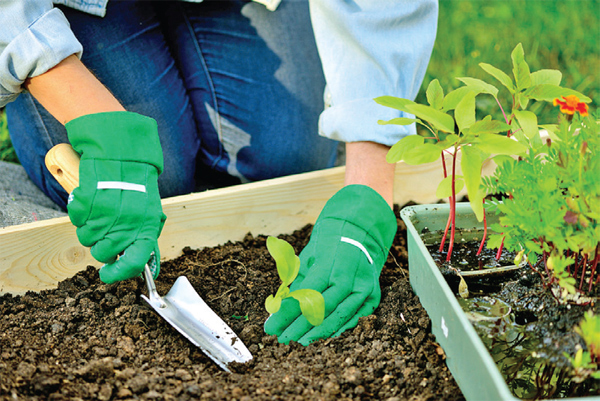Organic Gardening Elements
Some people believe that if they only use a small amount of chemical fertilizer, they are still producing organic. Organic gardens require fertilizers that are either plant or animal in origin. According to some studies, soils that have not been treated with chemical or synthetic fertilizers or herbicides attract fewer pests.
Pests can attack organic gardens at times, and you must provide some sort of support. Garlic and peppers, for example, can be used to repel common pests. Neem tree extracts are also effective against leaf-eating, stem-boring, and flower-eating pests.
Organic gardening, in its purest form, means gardening without the use of any chemical substances, such as fertilizers, pesticides, growth enhancers, and so on. Some people believe that if they only use a small amount of chemical fertilizer, they are still producing organic. They are, however, incorrect. Let's look at some of the myths and issues surrounding organic gardens.
Don't get us wrong: organic gardens do not imply abandoning them to nature. It does require fertilization and pest control. You will, however, use organic materials, techniques, or approaches.
Organic gardens, for example, require fertilizers that are either plant or animal in origin, rather than petroleum or chemical-based, as most synthetic fertilizers are. As a result, organic gardens will have to rely on composts, animal manures, and other organic materials to add nutrients to the soil that the plants require for growth. It's a good thing, because natural fertilizers are less harmful to the soil in the long run than synthetic ones.
The importance of maintaining a healthy soil is one of the many tips that an expert organic grower will give you. According to some studies, soils that have not been treated with chemical or synthetic fertilizers or herbicides grow plants that attract fewer pests. There are several methods for protecting your soil. Covering it with vegetation or mulch will protect the soil surface from unnecessary damage caused by excessive sun exposure and wind and rain erosion. Keep in mind that the top layers of soil contain the living organisms that plants require.
Pests can attack organic gardens at times, and you must provide some sort of support or your plants will be destroyed by aphids, worms, and other pests. There are several viable alternatives to commercial chemical fertilizers. Some are easily accessible in your own kitchen, making them extremely convenient.
Garlic and peppers, for example, can be used to repel common pests. Neem tree extracts are also effective against leaf-eating, stem-boring, and flower-eating pests. You should also be aware that spiders, ladybugs, and lacewings are three of the many insects on your side. Because these insets are natural predators of aphids, worms, larvae, and other pests, they should be treated with care.
Another way to keep pests at bay in your garden is to plan ahead of time. When you plant your plants, you could also plant plants that are natural insect repellents, such as marigolds, which are very effective against nematodes.
Everything in an organic garden should be centered on nature.
It's sometimes nice to think of organic gardening as a way to help protect the environment by reducing the use of pesticides and chemical fertilizers that are harmful to the environment. Whether it's a flower garden, your lawn and shrubs, a vegetable patch, or even a fruit and herbs garden, using organic techniques will help build a better future for the next generation.
These are just a few of the things you'll need to learn when starting your own organic garden. Just keep in mind that organic gardening is a technique that focuses on the interaction of living organisms.


















0 komentar:
Posting Komentar